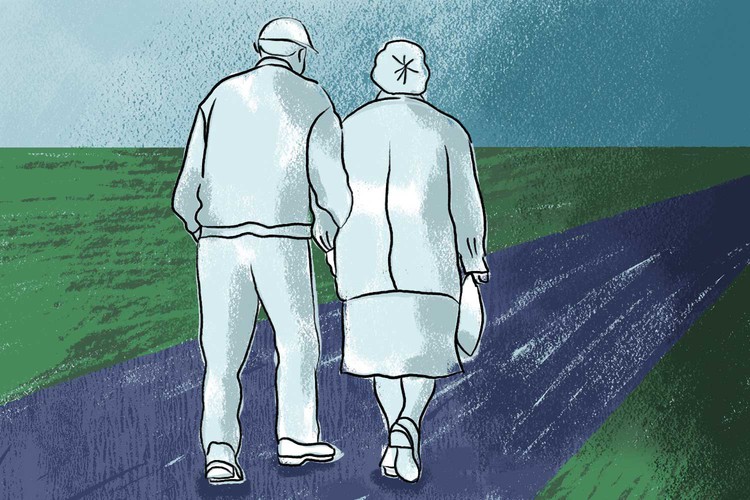
6 November 2025
Western Cape pensioners have petitioned government to increase their grants. Illustration: Lisa Nelson
“We are not asking for charity, we are asking for justice and dignity.” This was the message from Western Cape pensioners who petitioned Parliament’s Portfolio Committee on Social Development on Wednesday to increase the Older Persons’ Grant to R5,000 a month.
The grant is currently R2,320 for people aged 60 to 74 and R2,340 for those over 75. About four million people receive the government pension.
The group first marched to Parliament in August, handing over a memorandum of demands. On Wednesday, their representative Jeff van Wyk told MPs about the hardships faced by the elderly.
Van Wyk said the petition reflects growing frustration among elderly people in communities such as Ravensmead, Khayelitsha, Elsies River, Hanover Park and Langa. “Our elders, the backbone of our families and communities, face systemic failures that strip them of their dignity.”
Pensioners are demanding that the grant be increased by a minimum of 6% annually. The current amount does not cover food, rent, electricity and other essentials, they said.
Other grievances include poor treatment at SASSA offices, long queues, payment delays, and grants suspended without explanation.
Social Development Deputy Minister Ganief Hendricks said the call for an increase is “not taken for granted”.
The 2022 Census estimates show more than five million people in the country are 60 or older. “Approximately half of older persons live in households without any employed household members. For these households, social grants play an important role in sustaining vulnerable families,” Hendricks said.
But he warned of severe financial limits: “Given the substantial pressures on the fiscus, the government has had to make difficult decisions to bring public finances back under control.”
SA Social Security Agency (SASSA) CEO Themba Matlou said the grant had grown from R1,350 in 2014 to R2,310 in 2025, with an extra R75 for those over 75, and an additional R560 for those who require full-time care. “The grant is the highest paid compared to the other social grants,” he said.
He emphasised that SASSA does not determine grant amounts. “Social grant amounts are based on legislative and policy frameworks, fiscal sustainability, and consultations between the Department of Social Development, National Treasury and other ministries.”
Pensioners complained to MPs that SASSA’s grant review process often results in delays without communication, leaving them without income for months. Reviews involve SASSA periodically verifying beneficiaries’ income and circumstances to ensure they still qualify under the means test. Beneficiaries are notified to submit updated documents. If they fail to respond or provide information by the deadline, their grants may be temporarily suspended.
Matlou responded saying that the reviews were “not a punitive measure, but a compliance mechanism”. He said beneficiaries could appeal against any suspension or termination.
He also acknowledged poor service delivery and system failures at SASSA offices. Complaints about staff behaviour were being addressed through training and performance monitoring, Matlou said.
DA MP Alexandra Abrahams said, “No petition or PowerPoint presentation could ever capture the pain and suffering in the seniors’ eyes” when they marched to Parliament in August. She blamed corruption and mismanagement in government for limiting meaningful increases to social grants.
DSD deputy director-general Brenda Sibeko said the Older Persons’ Grant is currently above all poverty lines but acknowledged it is still not enough. “This does not mean that the money they’re getting is adequate to live on, because the cost of living is much higher,” Sibeko said. She added that older people should also be supported with subsidised access to water, electricity and other services.
Hendricks said the department had asked the finance minister to “look closely at the older person’s grant” when finalising the budget.